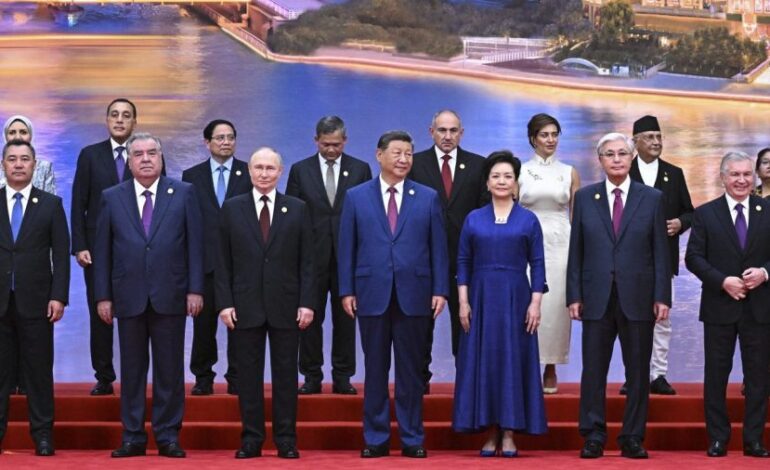Global Powers Risk Fragmentation into Rival Blocs, Analysts Warn

The world is on the brink of a significant geopolitical shift, with analysts warning of a possible fragmentation into rival economic and political blocs. This emerging trend threatens global prosperity and peace, reminiscent of the tensions observed in the 1930s. As nations increasingly pursue isolationist policies and align with like-minded partners, the international landscape is becoming increasingly polarized.
Historical Parallels and Current Context
In the 1930s, the world witnessed the rise of totalitarian regimes and the collapse of established international norms, leading to conflict and economic instability. According to the International Monetary Fund (IMF), the current geopolitical climate is similarly fraught, with rising tensions between major powers such as the United States and China. The European Union is also grappling with its position as it navigates its relationships with both superpowers.
Recent events, including trade disputes and military posturing, have exacerbated these tensions. For instance, the imposition of tariffs and sanctions has not only strained relationships but also disrupted global supply chains, leading to increased costs for consumers and businesses alike. The World Trade Organization has noted a marked decline in multilateral trade agreements, which historically fostered cooperation and economic growth.
Economic Consequences of Fragmentation
The potential for a fractured world order carries significant economic risks. According to a report by the United Nations, global economic growth is projected to slow down to 2.5% in 2024, compared to 3.5% in 2023, largely due to these geopolitical tensions. As nations retreat into their respective corners, the benefits of globalization that have lifted millions out of poverty could be jeopardized.
The shift towards regional blocs may also lead to a decline in foreign direct investment (FDI). Investments that once flowed freely across borders could become more localized, reducing opportunities for economic collaboration. With rising protectionism, industries may face challenges in accessing global markets, ultimately affecting employment and innovation.
In this context, the role of international organizations becomes increasingly critical. The IMF and WTO must adapt to these new realities, advocating for policies that promote cooperation and mitigate the risks associated with fragmentation.
The Path Forward
To address these challenges, nations must prioritize dialogue and diplomacy. History teaches us that isolationism often leads to conflict rather than security. Engaging in constructive conversations can help bridge divides and foster a sense of shared purpose among nations.
Moreover, the global community must work together to strengthen institutions that promote stability. As the world grapples with these complex dynamics, the need for effective governance and international collaboration has never been more pressing. The current landscape demands a renewed commitment to multilateralism, ensuring that the world does not repeat the mistakes of the past.
As March 2024 approaches, global leaders and policymakers will need to navigate these turbulent waters with foresight and resilience. The decisions made in the coming months will shape the future of international relations and influence the trajectory of global prosperity for years to come.






